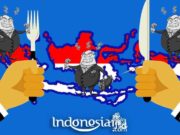Long before the Government of the Republic of Indonesia sent Indonesian Migrant Workers (TKI) abroad, the Government of the Kingdom of the Netherlands from 1890 to 1939 had sent 32,956 workers from Java to Suriname. At that time, Suriname and Indonesia were both colonies under the Government of the Kingdom of the Netherlands.
The purpose and purpose of sending workers is to increase the labor shortage in several plantations in Suriname. The labor shortage itself was the result of the abolition and release of the slavery system on July 1, 1863. As a result, many plantations were neglected, leaving them abandoned. The economy of Suriname, which originally depended on plantation products, fell dramatically.
Another consideration from the Dutch Royal Government, which sent workers to Suriname at that time, was due to the low economy of the population on the island of Java, which was caused by natural disasters and volcanic eruptions and the density of the population.
However, according to Prof. DR. Yusuf Ismail at Leiden University in the Netherlands in 1949 stated: It was not overpopulation that was the reason to emigrate to Suriname, but the immense squalor, which was suffered by people in several regions of Java on the one hand and the interests of plantations in Suriname on the other.
Therefore, most of the workers came from Central Java, some from East Java and the least amount from West Java. Hopefully the articles from Indonesiar.com can be useful to add to your insight.
Source :wikipedia































